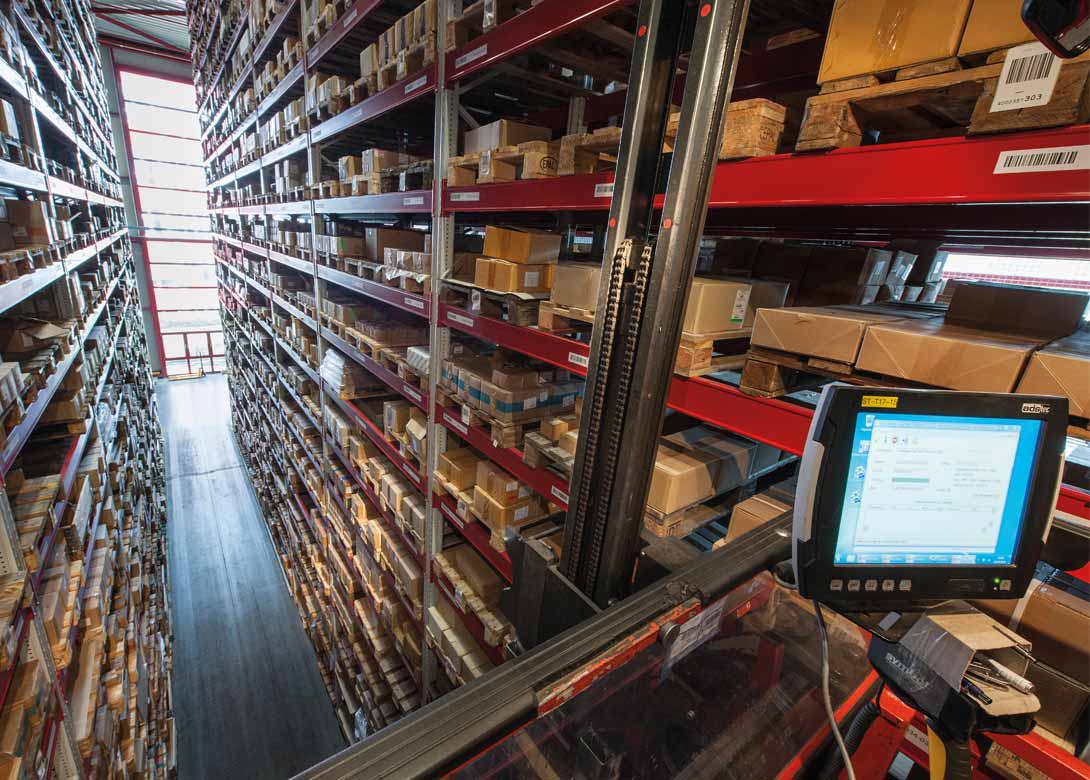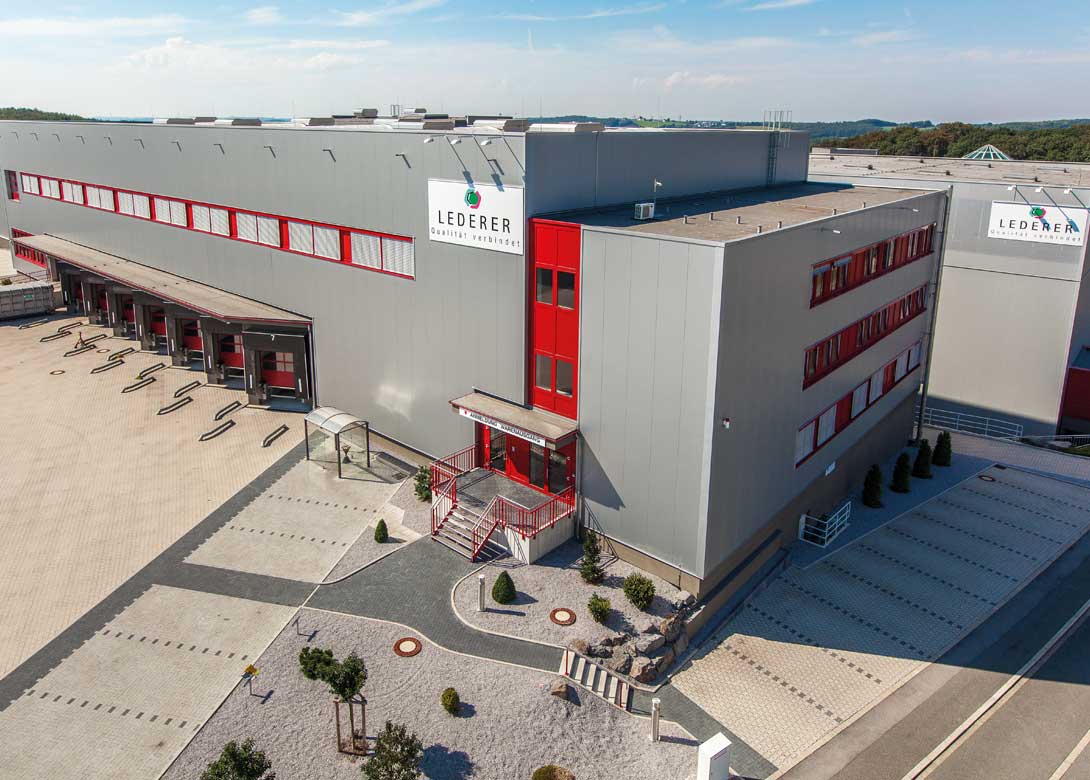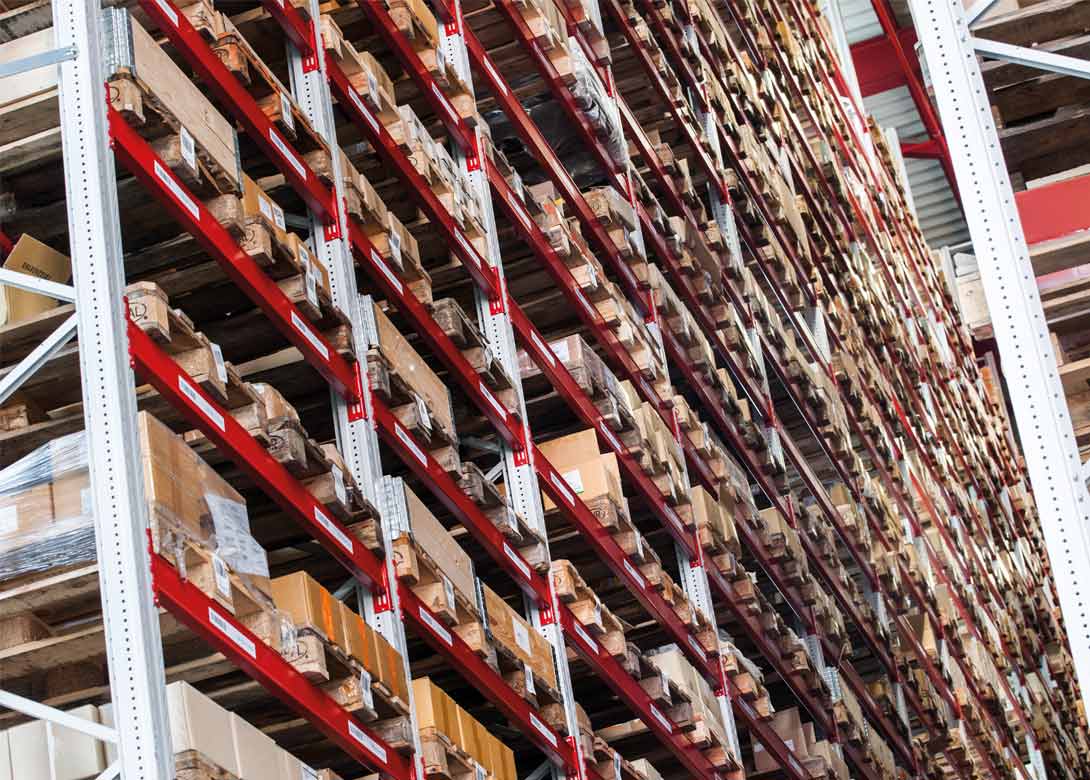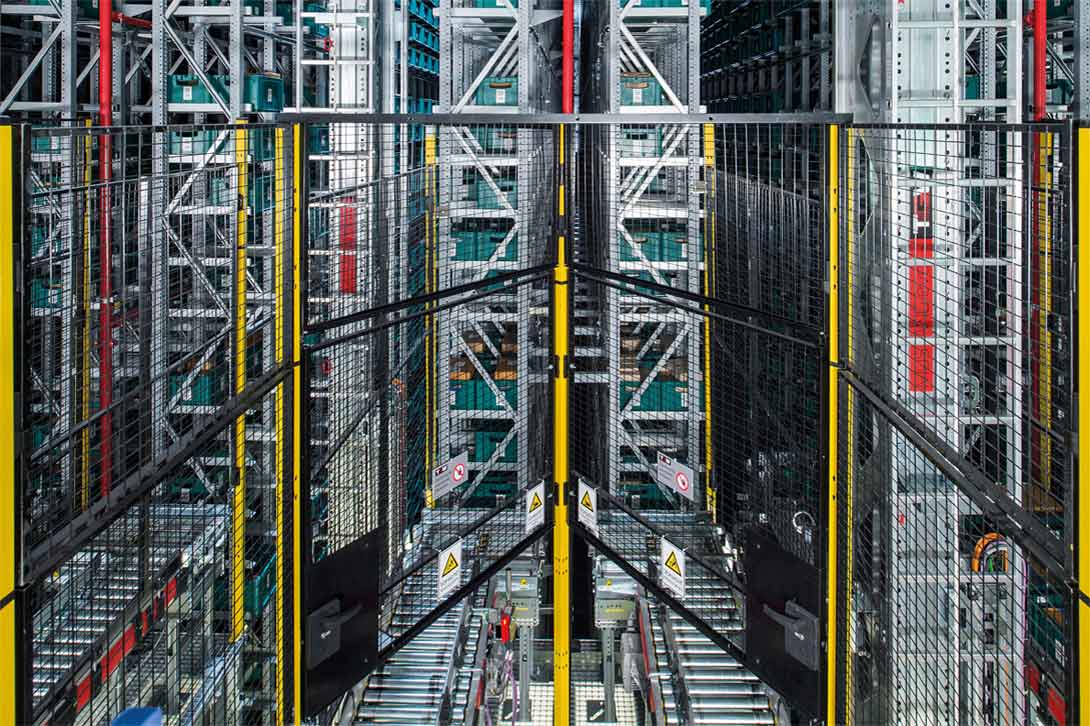
Whilst digitisation may be a new hot topic for some companies within the fastener industry, Lederer GmbH has been working on the continuous digitisation of the business for over a decade.
Managing Director Volker Lederer is clear that digitisation is a trend all companies must follow, if they want to stay competitive within the market. “We have been focusing on digitisation at Lederer for a long time and it has been an ongoing process. Through different projects and investments, such as the automated warehouse, we have continuously introduced digitisation to more and more parts of the business.”
The key for Lederer was to understand what digitisation meant for it as a business. “We have built up a master plan focused on the entire company – from purchasing, sales, quality, marketing, and logistics – that describes the topics where digitisation takes place or needs to take place,” points out Volker. “There are a lot of things around digitisation that play an important role in the business, for instance the different interfaces and the automatic data exchange available to the customers. I believe these types of developments will continue and accelerate in the coming years.”
One of the biggest developments at Lederer in recent years that supported the company’s digitisation was the introduction of the automated warehouse – which came into full operation in 2015. “There were two main reasons why we needed the new automated warehouse,” mentions Volker. “The first was we needed to expand and create more space for stock. The second reason was we wanted a more streamlined logistics system. The old system was not efficient enough and not flexible enough. It was a substantial investment for us, but since the automated warehouse and logistic system has been up and running we have definitely seen significant benefits starting to come through. We are able to handle much more volume and we are now a lot more flexible. We can also control the process a lot better than before and they are now transparent – meaning we can offer customers a better service.”
In addition to its automated warehouse, Lederer has also doubled its office space – adding two additional floors on top of the two it already had in place. This additional space has helped Lederer reorganise its departments. “Previously when we hired new people we didn’t know where to put them, because we didn’t have space. Now we have the space, and we have been able to organise the departments according to their functions and their requirements, which has made us a lot more efficient within the offices,” adds Volker.
An upcoming development that will continue to improve the company’s digitisation is the updating and further implementation of Lederer’s ERP system. “The key thing is we are already using the system, so it already has us working very efficiently,” explains Volker. “We have really analysed our processes and our target is to optimise our administration methods even further and to be more efficient through the further use of the standard parts of the ERP system – whilst also customising the system to our needs. This will ultimately make us more effective and flexible in the administration process.”
Another part of Lederer’s extensive service is its webshop, which has consistently seen an increase of users of around 10% every year. “A big benefit of the webshop is it makes customers, especially international customers, independent of opening hours or public holidays,” mentions Volker. “They can get all the information they need at the touch of a button and can see the products we are able to supply.”

Monitoring product developments
To make sure it is supplying the products its customers need, Lederer analyses developments on the market to see which products are being requested by customers. “We have noticed there are a lot of stainless steel parts that are becoming standard items in the market,” points out Volker. “By observing the market we can ensure we have the full range of products. Our target is to offer the whole range of stainless steel fasteners.”
Lederer suppliers both trade and industrial (end user) customers, with the split 35% – 65% respectively. “The business in the two markets is completely different and we offer different products and surfaces to the differing requirements,” explains Volker. “We only supply stainless steel fasteners to distributors and our target is to increase our market share in this sector. We also want to supply more standard items with distributors in the future. We are known for providing excellent service, but we could not always compete with the low prices from competitors. However, with the changes at the company, and in the market, we are now more competitive and our first-class service enables us to stand out from the crowd.”
For industrial customers Lederer is focusing on further expanding the services it can provide. “Industrial customers are looking for powerful distributors, which is why we work with our global network of manufacturers and partners to offer the parts, the service, the technical support, the digital support, and most importantly the quality assurance, that makes us the perfect partner,” states Volker.
Guaranteeing quality
Lederer can offer this assurance regarding the quality of its products thanks to the inspection QC laboratory at its head office in Ennepetal, Germany, as well as a being the co-owner – with another fastener distributor – of the Fastener Quality Centre in Shanghai, China. “We do a lot of quality inspections and we regularly visit and audit our suppliers in Europe and Asia,” says Volker. “We are also currently working on a supplier management system, which we are going to implement next year – alongside the new ERP system. This will enable us to observe the supplier in a more professional way and create a detailed rating to ensure the supplier can produce the necessary products.”
Lederer products are classified into three groups – standard items, special items and safety items. A supplier must be qualified according to the relevant class before they can be chosen to produce the part. “You can have many problems if the manufacturer cannot produce to the right quality,” points out Volker. “A manufacturer who produces standard parts may not have the technical knowledge of the processes and products to produce specials. However, it can still be a reliable supplier of high-quality standard parts. That is why we are introducing the classification system.”

Considering the ‘human factor’
Whilst digitisation has become core to the business, Lederer is also aware of the crucial role the ‘human factor’ can play within business. “We see digitisation as the opportunity to simplify and optimise processes. However, the relationship between people is absolutely vital. Being able to talk to them and hear what they are saying, and understanding their needs, will always continue to be a big part of business,” says Volker.
The ‘human factor’ is also an important part of the relationship with the suppliers. “We have known our suppliers for a long time, sometimes over 20 years, but I still go to visit them to understand them, and to keep the relationship,” mentions Volker. “It is by doing this you build a partnership and help each other. In business you need to support and you have to give support. All this works better if you know each other and you trust each other.”
By having these close relationships with it suppliers Lederer can understand what is happening within the supply market and make sure it is able to react quickly to market fluctuations. “We have a purchasing office in Shanghai that observes the Chinese market very carefully, so they can inform us on changes in the Chinese market and government policies,” explains Volker. “For instance, because of government environmental inspections a lot of Chinese factories have shut down their production. This policy is creating a lot of uncertainty in what is going on in the Chinese market. We have seen a significant price increase in the last few weeks, which may not be as big as in other procurement markets, but there is still uncertainty because of the policy.”
Volker continues: “In addition to observing the procurement markets every day, we also need to look at topics such as raw material prices (especially nickel) and the currency exchange rate between the Euro and US Dollar. If prices increase in the nickel market then we may have to increase our market price. We do this very carefully because we do not want to lose market share and the competition in stainless steel in Europe is very competitive, but it is a necessity because of the costs. To counteract these changes in the market, we have a very high stock level in our warehouse, which means we are able to manage shortages. Also, thanks to digitisation we can make sure we are as efficient as possible, which helps reduce costs further and also ensures a first-class service that is cost-effective.”


Will joined Fastener + Fixing Magazine in 2007 and over the last 15 years has experienced every facet of the fastener sector - interviewing key figures within the industry and visiting leading companies and exhibitions around the globe.
Will manages the content strategy across all platforms and is the guardian for the high editorial standards that the Magazine is renowned.
Don't have an account? Sign Up
Signing up to Fastener + Fixing Magazine enables you to manage your account details.